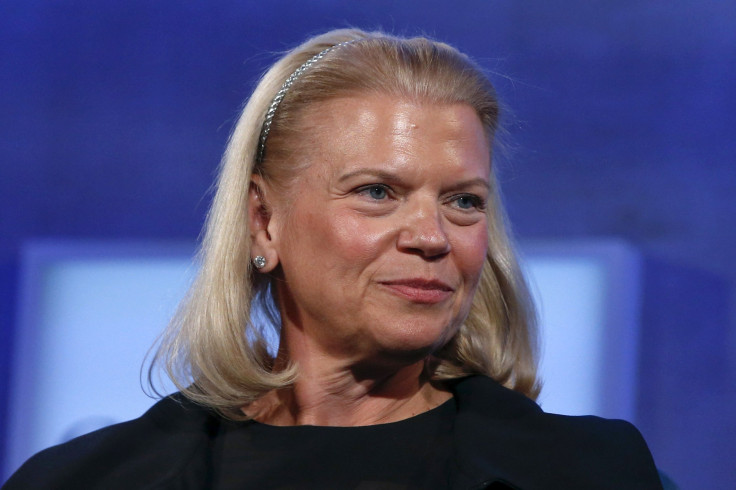IBM Abandons Roadmap 2015: Is CEO Ginni Rometty On The Hot Seat?

International Business Machines Corp. announced Monday it would back away from a plan to deliver $20 earnings per share by next year, abandoning the Roadmap 2015 pledge made by former CEO Sam Palmisano in 2010. After missing Wall Street expectations, is current chief executive Ginni Rometty's job in peril?
“Rometty is clearly in the hot seat, but is working hard with the hand she was dealt. She's done a reasonable job with repositioning the portfolio, but it has to move even faster,” said Jordan Posner, managing director and senior portfolio manager at Matrix Asset Advisors. “I don't think there's any chance she will be forced out over this disappointment. Of course, if the company doesn't show improvement in both execution and strategy of the next 12- to 18 months, I think the entire status quo will be reassessed by the board."
Shares of the blue-chip Dow component tumbled 7.11 percent Monday to close at $169.10 after sinking to its lowest intraday price in nearly three years. The Armonk, New York, company missed Wall Street forecasts due to weaker-than-expected software revenues and lower productivity in its services business during the quarter ended Sept. 30.
Since Rometty became CEO in 2012, revenue has fallen for the 10th consecutive quarter. Third-quarter revenue from continuing operations fell 4 percent from a year earlier to $22.4 billion, driven by sluggish growth in its global services and software segments. Revenues from global services decreased 3 percent to $13.7 billion from a year ago, and revenues from the software segment were down 2 percent to $5.7 billion compared with the third-quarter of 2013.
During an interview Monday with on CNBC, Rometty said the company’s recent decisions, including a deal to offload its semiconductor unit to Globalfoundries, were made to help IBM be “successful in the future,” adding the company is working to integrate its cloud, data and analytics operations.
With the announcement Monday it would divest its chip manufacturing business to Globalfoundries, IBM became the latest major tech firm to pare operations, part of a growing trend of large bellwether conglomerates spinning off segments to invest in other growth areas. In September, eBay Inc. announced plans to separate the e-commerce giant and PayPal into independent, publicly traded companies in 2015, a move activist investor Carl Icahn demanded. Hewlett-Packard followed suit with a plan to separate its personal-computer and printer businesses from its corporate hardware and services operations. Then Symantec Corp. revealed plans to split into two publicly traded companies -- one focused on security and the other on information management.
IBM is trying to shed less profitable businesses. In addition to its deal with Globalfoundries, it completed a sale of its server business to Lenovo Group earlier this month. The move follows in the footsteps of the sale of its PC business to Lenovo in 2005.
Following the earnings miss and the company abandoning its Roadmap 2015 pledge, investors will have to wait until January for IBM to update its outlook for next year. “For IBM to really be successful going forward, Rometty and her team need to be successful creating an IBM that’s focused on the next generation of cloud spending," said FBR Capital Markets analyst Daniel Ives. "That’s where enterprises are moving and they need to build a product and services strategy on the cloud environment.”
© Copyright IBTimes 2024. All rights reserved.






















